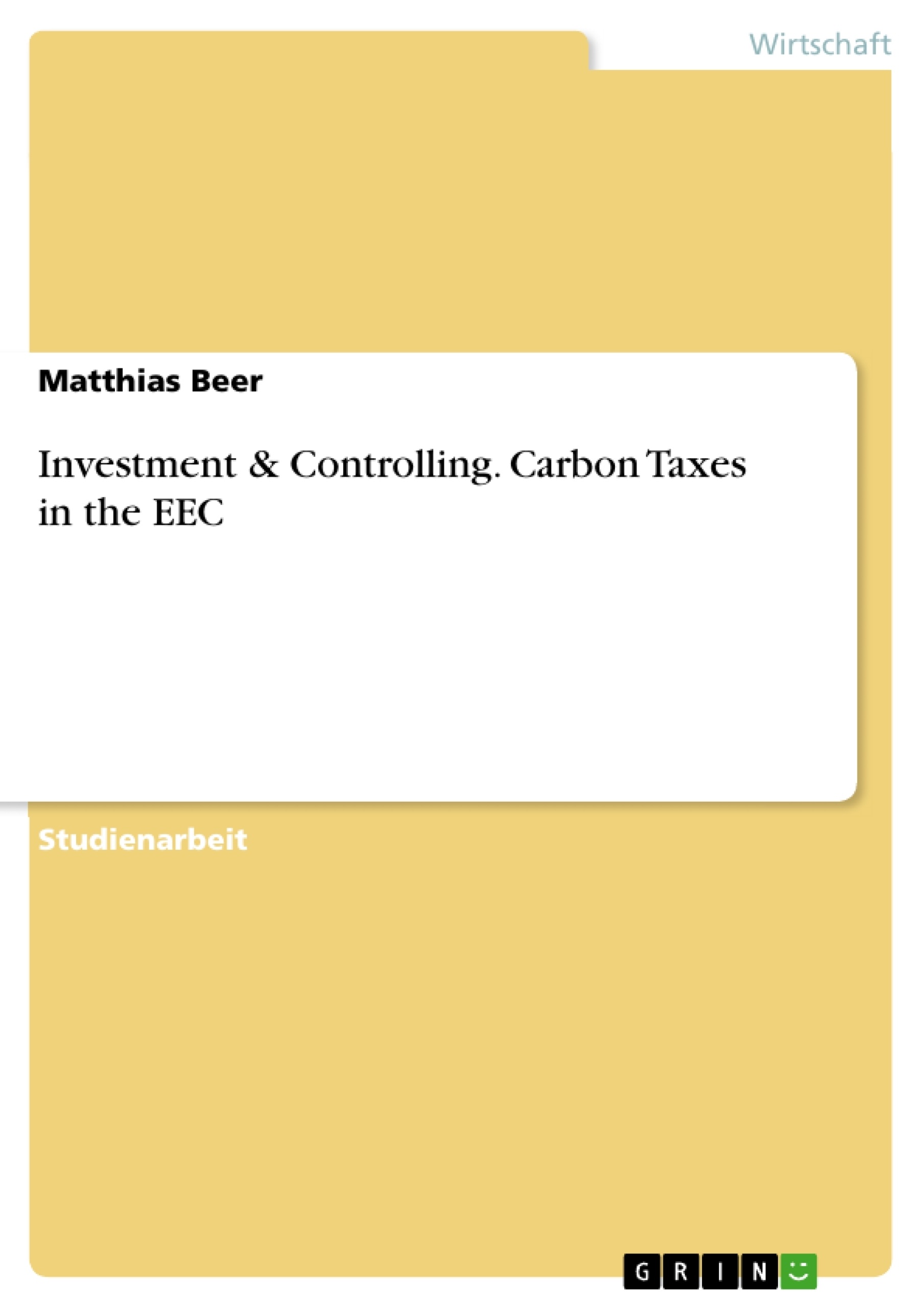Executive Summary:
Global warming is becoming a serious issue around the world. On a daily base, the effects of global warming can be seen and the number of related natural catastrophes is increasing every year. The global warming effect is directly re-lated to the greenhouse gases (GHG) which are freed when fossil fuels are burned. In this process, carbon dioxide is produced and rises into the atmosphere where it is causing global warming due to reflection of infrared. As a counter measure with the aim to reduce the GHGs the Kyoto Protocol was signed on 11th of December 1997. In this regards, many policy mechanisms to reduce GHG emissions are discussed and are already exists. Scholars are predicting that the mechanism with the strongest effect is pricing on carbon.
This assignment is explaining briefly the background of carbon dioxide and provides also a short introduction of the carbon footprint of products and enterprises. The main part of the work deals with economical aspects of carbon taxation. The chapter is analyzing the greenhouse emission trends since 1990 and derives the affected industry sectors for carbon taxation. Further, the cost of carbon taxation in the EEC is evaluated and an estimated cost increase for a 4-person household in the European member states given.
The finding of this assignment is that carbon taxation in the EEC is useful and is raising the motivation to develop engines that are more efficient and in addition encourage alternative energy sources. At the same time, there are also risks involved in carbon taxation if this is only a European decision rather than a global strategy. In that case future investments are potentially done outside the EEC due to lower or even no taxation on carbon emission.
Inhaltsverzeichnis
- Executive Summary
- List of Abbreviations
- List of Figures
- List of Table
- 1. Introduction
- 2. Carbon footprint
- 3. History of energy taxation in Europe
- 4. Economical Aspects of Carbon Taxation in the EU
- 4.1. Greenhouse Emission Trends in the EU since 1990
- 4.2. Affected Industry Sectors in the EEC
- 4.3. Costs of Carbon Taxation in the EEC
Zielsetzung und Themenschwerpunkte
Diese Arbeit befasst sich mit den ökonomischen Aspekten der CO2-Besteuerung in der Europäischen Wirtschaftsgemeinschaft (EWG). Sie analysiert die Entwicklung der Treibhausgasemissionen seit 1990 und identifiziert die von einer CO2-Steuer betroffenen Industriezweige. Weiterhin werden die Kosten der CO2-Besteuerung in der EWG untersucht und eine Schätzung der Kostensteigerung für einen 4-Personen-Haushalt in den europäischen Mitgliedstaaten gegeben.
- Treibhausgasemissionen in der EU
- Industriezweige, die von CO2-Besteuerung betroffen sind
- Kosten der CO2-Besteuerung in der EWG
- Einfluss der CO2-Besteuerung auf Haushalte
- Vorteile und Risiken der CO2-Besteuerung
Zusammenfassung der Kapitel
Das erste Kapitel führt in das Thema CO2-Besteuerung ein und erläutert die Bedeutung der Treibhausgasemissionen für den Klimawandel. Das zweite Kapitel erklärt den Begriff des CO2-Fußabdrucks und wie dieser berechnet wird. Das dritte Kapitel beleuchtet die historische Entwicklung der Energiesteuer in Europa. Kapitel vier widmet sich den ökonomischen Aspekten der CO2-Besteuerung in der EU. Es analysiert die Entwicklung der Treibhausgasemissionen in der EU seit 1990, die von einer CO2-Steuer betroffenen Industriezweige und die Kosten der CO2-Besteuerung in der EWG.
Schlüsselwörter
CO2-Besteuerung, Treibhausgasemissionen, Klimawandel, Europäische Wirtschaftsgemeinschaft (EWG), Industriezweige, Kosten, Energiesteuer, Kyoto-Protokoll, Emissionshandel.
Was ist das Hauptziel der CO2-Besteuerung?
Das Ziel ist die Reduzierung von Treibhausgasemissionen durch finanzielle Anreize, um die globale Erwärmung gemäß dem Kyoto-Protokoll zu begrenzen.
Welche Industriezweige sind von der Steuer besonders betroffen?
Betroffen sind vor allem Sektoren mit hohem Verbrauch fossiler Brennstoffe, wie die Energieerzeugung, der Transportsektor und die Schwerindustrie.
Wie wirkt sich die CO2-Steuer auf private Haushalte aus?
Die Arbeit schätzt die Kostensteigerungen für einen 4-Personen-Haushalt in den EU-Mitgliedstaaten durch höhere Energie- und Kraftstoffpreise.
Welche Risiken birgt eine rein europäische CO2-Besteuerung?
Es besteht das Risiko, dass Investitionen in Länder außerhalb der EU abwandern, in denen keine oder geringere Steuern auf Emissionen erhoben werden.
Fördert die CO2-Steuer Innovationen?
Ja, sie erhöht die Motivation zur Entwicklung effizienterer Motoren und zur Nutzung alternativer, regenerativer Energiequellen.



